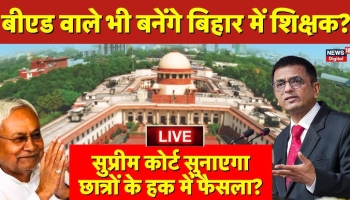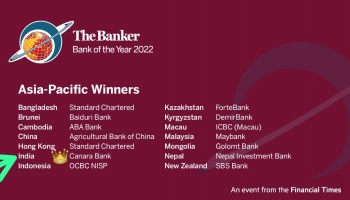Directions—(Q. 1–5) Rearrange the following six sentences (1), (2), (3), (4), (5) and (6) in the proper sequence to form a meaningful paragraph; then answer the questions given below them—
1. It was a cycling race launched in 1903, by Henri Desgrange, a magazine editor in Paris.
2. The Tour de France is a test of human endurance.
3. His idea worked and the magazine boomed.
4. His aim was to boost the circulation of his magazine.
5. He wanted to achieve this by covering every stage of the three week long, 3,500 kilometre long cycling race.
6. Till today the race remains more popular than he could ever have dreamed.
1. Which of the following should be the first sentence after rearrangement ?
(A) 1
(B) 2
(C) 3
(D) 4
(E) 5
2. Which of the following should be the second sentence after rearrangement ?
(A) 1
(B) 2
(C) 3
(D) 4
(E) 5
3. Which of the following should be the third sentence after rearrangement ?
(A) 1
(B) 2
(C) 3
(D) 4
(E) 5
4. Which of the following should be the fifth sentence after rearrangement ?
(A) 1
(B) 2
(C) 3
(D) 4
(E) 6
5. Which of the following should be the sixth (Last) sentence after rearrangement ?
(A) 2
(B) 3
(C) 4
(D) 5
(E) 6
Directions—(Q. 6–15) Read each sentence to find out whether there is any grammatical error or idiomatic error in it. The error, if any, will be in one part of the sentence. The letters of that part is the answer. If there is no error, the answer is (E). (Ignore errors of punctuation, if any.)
6. On account of the week (A)/long strike the factory (B)/was forced to close and (C)/next month’s shipment will delay. (D) No error. (E)
7. Since the US economy experiences (A)/a recession many Asian countries (B)/are likely to have (C)/reduced growth rates this year. (D) No error. (E)
8. Oil is now so expensive that (A)/India will have to cut subsidies (B)/instead face running out (C)/of funds to import oil. (D) No error. (E)
9. It is unlikely that you will (A)/find a more qualified and experience (B)/candidate than Mr. Prasad (C)/for the post of President. (D) No error. (E)
10. On account of the rising (A)/costs many people are (B)/finding it difficult (C)/ to feed their families. (D) No error. (E)
11. By marketing agriculture (A)/products well, we (B)/can ensure that (C)/farmers make a good profit. (D) No error. (E)
12. The promotion means (A)/that you may be (B)/post in Chennai (C)/from next month. (D) No error.(E)
13. This project is (A)/too big to (B)/undertake successfully at (C)/such short of notice. (D) No error. (E)
14. When our company was (A)/faced financial difficulties (B)/the training budget was (C)/the first to be cut. (D) No error. (E)
15. Conservationists believe that (A)/better management of national parks (B)/is the only way to save (C)/India’s tiger population from extinction. (D) No error. (E)
Directions—(Q. 16–25) In the following passage there are blanks, each of which has been numbered. These numbers are printed below the passage and against each, five words are suggested, one of which fits the blank appropriately. Find out the appropriate word in each case.
In July 2008, one of the most inspiring leaders of our times, will …(16)… his ninetieth birthday. Nelson Mandela retired from politics in 1999, but he has remained …(17)…, continuing his work through the Nelson Mandela Foundation. The foundation has launched an Aids awareness campaign, 46664, named …(18)… Mandela’s prison number. He has also set up a scholarship programme whose …(19)… was to promote leadership among young Africans.
During the 1990s, …(20)… I worked with Mr. Mandela on his autobiography “Long Walk to Freedom”, I …(21)… his leadership first hand. During his election campaign we were on board a plane discussing his book. Twenty minutes …(22)… to landing the engine failed. Many began to panic. The only thing that …(23)… them was looking at Mandela, who was reading his paper as if he was a passenger on a morning train to work. The plane landed safely and when we got into the car taking us to the hotel he …(24)… to me, “I was terrified on the plane !” As a leader he realized he was a model for others and this gave him the strength to …(25)… over his own fear.
16. (A) tribute
(B) remember
(C) honour
(D) celebrate
(E) rejoice
17. (A) resigned
(B) active
(C) influenced
(D) participant
(E) reserved
18. (A) by
(B) with
(C) after
(D) as
(E) thereafter
19. (A) wish
(B) pursuit
(C) result
(D) plot
(E) aim
20. (A) when
(B) that
(C) period
(D) later
(E) alongside
21. (A) felt
(B) acquainted
(C) experienced
(D) underwent
(E) learned
22. (A) before
(B) sooner
(C) close
(D) prior
(E) advance
23. (A) calmed
(B) soothing
(C) composed
(D) restraint
(E) discipline
24. (A) speaks
(B) confided
(C) confidentially
(D) entrusted
(E) assured
25. (A) success
(B) overcame
(C) dominate
(D) victory
(E) triumph
Directions—(Q. 26–40) Read the following passage carefully and answer the questions given below it. Certain words have been printed in bold to help you locate them while answering some of the questions.
Over the past few decades, many Asian nations transformed from poverty into global competitors. From 2003 to 2007, Asian economies expanded at an average annual rate of 8·1%, triple that of advanced economies. Over the same period, inflation in Asia averaged only about 3·5%. But Asia could be facing turbulent economic times. In May, the average inflation rate throughout the region reached nearly 7%, led by spikes in oil and food prices. In India, inflation jumped to an 11·6% annual rate in June, according to the latest government figures, the highest in 13 years.
Policymakers and central bankers are forced to raise interest rates and limit credit to get inflation under control. But these same measures suppress the investment and consumption that generates growth. The combination of slowing growth and soaring inflation makes economic policy-making tricky. Inflation stirs up the middle classes because it can quickly erase years of hardwon personal gains. Inflation is cruel to the poor, because families have to spend a larger share of their meagre incomes on necessities. In the Philippines, farmers, unable to afford fuel for tractors, use water buffaloes to plough their fields.
But to avoid unrest, leaders cannot blindly adopt rigid anti-inflation measures. Voters won’t hesitate to remove from office any politician who doesn’t deliver the goods. So they cannot overreact to the inflation threat and scale down economic growth in the process. Developing nations need to grow quickly to create jobs and increase incomes for
their large populations. With prices soaring, doing nothing is not an option. Most central banks in Asia have started raising interest rates. The Reserve Bank of India increased its benchmark rate twice last month to a six year high of 8·5%.
The challenge is especially difficult because currently, inflation is not of domestic origin. Prices are being driven higher by a global surge in oil and food prices, which individual governments can do little to control. Of course, inflation is not just a problem in Asia. World Bank President Robert Zoellick called rising food and oil prices a man-made ‘catastrophe’ that could quickly reverse the gains made in overcoming poverty over the past seven years. For now, though, there is more talk than action on the international front, so Asian governments are on their own.
Even though inflation throughout the region is likely to continue to rise in coming months, no one is expecting an economic calamity. According to the Asian Development Bank Asian countries have large hard currency reserves and relatively healthy banks, and so are far better prepared to absorb external shocks than they were during the region’s last recession ten years ago. Asian policymakers have learned their lessons and are more alert.
26. Which of the following can be said about Asian economies during the period from 2003- 2007 ?
- Though inflation was rising at the time politicians did not pay much attention.
- Many of the poor countries were able to compete internationally.
- The growth rate of Asian countries was facilitated by growth in advanced countries.
(A) All 1, 2, and 3
(B) Only 1
(C) Only 2
(D) Both 1 and 2
(E) None of these
27. Which of the following is not an anti-inflation measure being used by Asian countries ?
1. Increase in benchmark interest rate by a central bank.
2. Checks on lending.
3. Subsidising fuel for farmers.
(A) Only 3
(B) Both 1 and 2
(C) Both 2 and 3
(D) Only 2
(E) None of these
28. What makes it difficult for Asian countries to control inflation ?
(A) Restrictions by organizations like the Asian Development Bank
(B) Governments are indecisive and adopt counterproductive measures
(C) The problem is global in nature, not restricted to their individual countries
(D) Countries have never faced a financial crisis
(E) Economic growth rate cannot occur in the absence of inflation
29. Why are experts not very concerned about the impact of inflation on Asian economies ?
1. Asian countries have not maintained substantial hard currency reserves.
2. The condition of Asian banks is currently both stable and strong.
3. The Asian Development Bank will bail them out of any trouble.
(A) Only 1
(B) Both 1 and 3
(C) Both 1 and 2
(D) Only 2
(E) None of these
30. What is the author’s advice to politicians regarding the handling of inflation ?
(A) They should focus on preventing agitations among their citizens not implementing antiinflation measures
(B) They ought to implement anti-inflation measures even at the cost of losing office
(C) They must focus on maintaining high economic growth rate as inflation will taper off on its own
(D) Countries should handle the problem independently and not collectively
(E) None of these
31. What could the impact of stringent inflation measures be ?
(A) Increased consumption as families spend a larger part of their income on essential goods
(B) Politicians may be voted out of power
(C) Economic growth rate remains constant
(D) Oil prices within the country remain stable despite high global prices
(E) None of these
32. Why is high economic growth necessary for developing countries ?
(A) To catch up with the growth rate of the advanced countries
(B) To sustain their economies despite the ill effects of inflation
(C) To provide better educational opportunities to their citizens
(D) To create employment opportunities for citizens
(E) None of these
33. Why has inflation been referred to as a ‘catastrophe’ ?
(A) Prices of essential commodities are unaffordable for all
(B) Our past efforts to reduce poverty will be nullified
(C) Governments are unstable and do not take stringent decisions
(D) It has divided countries rather than ensuring co-operation among them
(E) None of these
34. Which of the following can be inferred from the passage ?
1. Growth rate in advanced countries was low so the effects of inflation were not felt.
2. Closing the economy to global markets will reduce inflation.
3. India has been the most severely affected by inflation.
(A) None
(B) Only 1
(C) Only 2
(D) Both 2 and 3
(E) All 1, 2 and 3
35. Which of the following factors was responsible for inflation in India ?
(A) Reserve Bank India raising the interest rates very frequently
(B) High population growth
(C) Sudden rise in prices of oil worldwide
(D) Reckless competition with China
(E) None of these
Directions—(Q. 36–38) Choose the word which is most similar in meaning to the word printed in bold as used in the passage.
36. stirs
(A) trembles
(B) moves
(C) mixes
(D) inspires
(E) agitates
37. scale
(A) descent
(B) climb
(C) hindrance
(D) cut
(E) measure
38. origin
(A) ancestry
(B) source
(C) inauguration
(D) down
(E) heritage
Directions—(Q. 39–40) Choose the word which is most opposite in meaning to the word printed in bold as used in the passage.
39. turbulent
(A) quiet
(B) rest
(C) soothes
(D) stormy
(E) lawful
40. gains
(A) decreases
(B) fails
(C) deprives
(D) frauds
(E) losses
Directions—(Q. 41–45) Which of the phrases (A), (B), (C) and (D) given below should replace the phrase given in bold in the following sentences to make the sentence grammatically meaningful and correct. If the sentence is correct as it is and ‘No correction is required’, mark (E) as the answer.
41. The main objective of the workshop has made children aware of Western classical music.
(A) will make children aware
(B) is to make children aware
(C) is making aware children
(D) awareness of children
(E) No correction required
42. Afraid of missing her train and was late for the meeting, Sunita arrived an hour early at the station.
(A) but later for
(B) and been late to
(C) after being late
(D) and being late for
(E) No correction required
43. As a famous historian he has travelled around the world giving lectures on rare subjects.
(A) rarely to subjects
(B) of rare subject
(C) with rarest of subject
(D) in subjects rarely
(E) No correction required
44. The stadium wherever the opening ceremony will be held next month, is equipped with the latest facilities.
(A) in the opening ceremony
(B) which the ceremony will open
(C) where the opening ceremony
(D) that the opening ceremony
(E) No correction required
45. There will be a trend of unseasonal rainfall in April, in recent years.
(A) There has been
(B) It has been
(C) There is being
(D) It may have been
(E) No correction required
Directions—(Q. 46–50) In each of the following sentences there are two blank spaces. Below each five pairs of words have been denoted by letters (A), (B), (C), (D) and (E). Find out which pair of words can be filled up in the blanks in the sentence in the same sequence to make the sentence meaningfully complete.
46. A committee has been…………..to…………..the transformation of the city into an international finance centre.
(A) constituted, convert
(B) appointed, oversee
(C) converged, evaluate
(D) inducted, change
(E) inaugurated, determine
47. Keeping in mind the…………..to develop the sector the government has………….. solicited foreign investment.
(A) importance, never
(B) proposal, forcibly
(C) objective, wanted
(D) view, discretely
(E) need, actively
48. In his speech he vowed to…………..the four billion unbanked individuals across the world into the…………..of financial inclusion.
(A) represent, sphere
(B) target, area
(C) bring, realm
(D) engage, achievement
(E) convince, era
49. Although he puts in…………..of overtime and takes few holidays, he…………..cannot support his family.
(A) sufficient, however
(B) lot, besides
(C) much, thus
(D) plenty, still
(E) frequency, yet
50. They have been…………..on incentives to…………..these practices are implemented at grass root level.
(A) relying, ensure
(B) improving, secure
(C) advocating, confirm
(D) debating, necessitate
(E) focusing, display
Answers :
1. (B) 2. (A) 3. (D) 4. (C) 5. (E)
6. (D) 7. (A) 8. (C) 9. (B) 10. (E)
11. (A) 12. (C) 13. (C) 14. (B) 15. (E)
16. (D) 17. (B) 18. (C) 19. (E) 20. (A)
21. (C) 22. (D) 23. (A) 24. (B) 25. (E)
26. (E) 27. (C) 28. (C) 29. (D) 30. (C)
31. (B) 32. (B) 33. (B) 34. (D) 35. (C)
36. (E) 37. (D) 38. (B) 39. (A) 40. (E)
41. (B) 42. (D) 43. (E) 44. (C) 45. (A)
46. (B) 47. (E) 48. (B) 49. (D) 50. (A)





